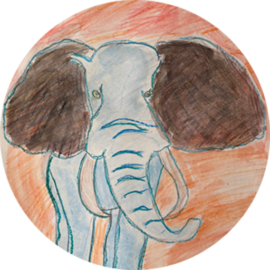A Beautiful Temptation
The other day I stumbled over an old issue of Harper’s Magazine, where food critic Wyatt Williams chronicles a journey to northern Alaska. He goes there to eat whale, but like every writer, he’s also looking for a bigger story.
When Williams meets Joe; a grizzled old man who spent his life creating a private little museum based on bits and pieces he’s collected over the years, the ‘bigger story’ seems to come within reach, but then—frustratingly—slips away:
Joe explained that forty years ago he had come here wanting something simple. He wanted to see a polar bear. He could not explain why he wanted to see a polar bear. He just said he was young and that was what he wanted. And soon after he wanted something more. And again and again.
Eating the Whale, A personal history of meat | Harper’s Magazine, September 2021
This is what happens when you want to understand, when you try to know everything you can know. It is a beautiful temptation, to collect from the world and arrange it so that the collection reduces the world around it, so that things around us that were once unexplainable and unknowable can now be seen clearly with a single glance. This is what maps, museums, books and farms try to do. They try to make the world comprehensible. They organize nature. This is what I wanted to do, I suppose. The trouble is that the world isn’t reducible in that way, it can’t be understood at a glance. It can’t be made single and smaller than it is. Yet we insist on trying to understand. It is a simple, human desire. We keep adding to our arrangements, to our museums, animal after animal, bone after bone, until there’s no more room. What’s left behind isn’t as big as the world, and somehow much smaller than the mystery that surrounds it. The failed collections of broken men. Dim rooms full of junk.
Williams’ piece made me think of the U2 song I Still Haven’t Found What I’m Looking For, where Bono struggles to reconcile his faith in God with constantly being plagued by doubt.
Then it made me think of Gertrude Stein, who eloquently concluded in her autobiography that There’s no there there.
*Then* it got me thinking of a project of mine, which is starting to seem just as futile as Joe’s dusty museum.
The project began with a deceptively simple goal: to figure out what defines the canonical English language novel.
I’m a slow reader so it took me a good while, but I did eventually finish the job. Only to discover that I hadn’t found what I was looking for. I felt like I was standing up close to a painting, studying the perfection of each individual brush stroke but never getting a feeling for the whole.
So I decided to zoom out, at first by adding depth; reading every Booker prize laureate of this century.
Having achieved that, I felt that perhaps indeed I had come to grasp some idea of a common denominator, however ephemeral. I was, however, haunted by the suspicion that the two dozen titles I’d read said more about the tastes of the Booker jury, than it did about the increasingly abstract idea of ‘the English language novel’ (a thought I expanded upon in the post What A Quarter Century Worth of Winners Says About the Booker Prize).
Consequently I had to zoom out yet again, and this time I decided to go for breadth. The next expansion would include all of this century’s winners of the two other literary prizes which, from my point of view, defined literary taste in the English speaking world; The National Book Award, and The Pulizer Prize for Fiction.
Now some seven years after I set out on this loony literary expedition, what have I learnt? I find that the more I read, the harder it gets to recognize any such thing as a canonical idea about ‘The Novel’.
In fact, it’s beginning to feel like my epistemological endeavour has followed an arc—initial clarity now giving way to growing confusion; where in the early days I did indeed feel like I made good progress, lately I’ve experienced an increasing confusion. Joseph Conrad’s classic Heart of Darkness comes to mind, where the further Marlow ventures into the jungle, the more he lose his sense of direction and purpose.
Towards the end of my journey, after having consumed some seventy-five novels—most of which were absolutely fantastic of course—I’m side-tracked by a sudden interest in particle physics. I’m reading Louisa Gilder’s gem of a book The Age of Entanglement and I suddenly realise just how pertinent the core tenets of quantum mechanics happens to be, also to understanding the dynamics of my quixotic quest. They had it all figured out already a century ago: the closer you look, the more elusive certainty becomes.
